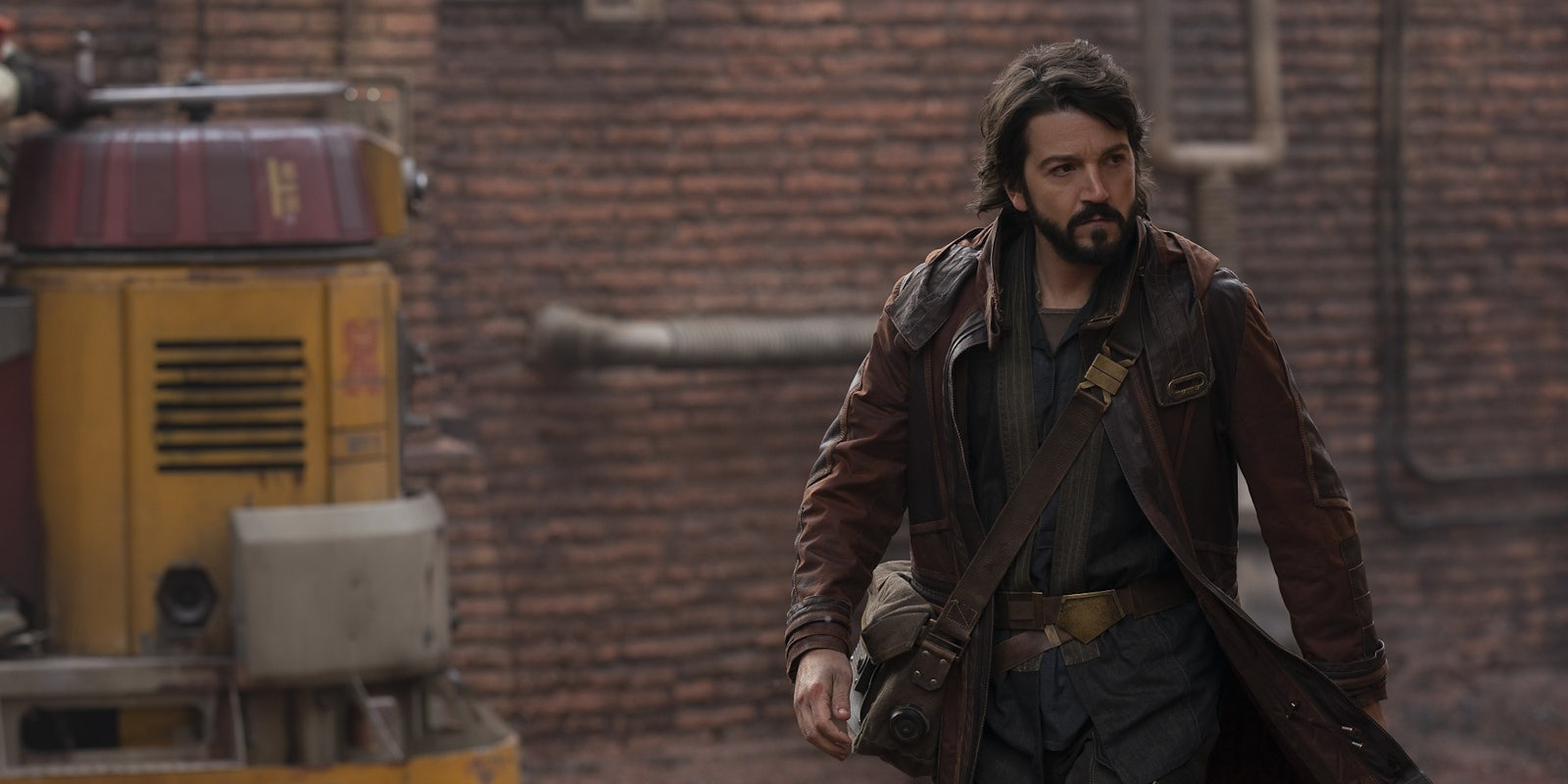This post includes nonspecific spoilers for Andor episode 12, “Rix Road.”
The influences behind Andor are less obvious than the classic Western vibes in The Mandalorian, or indeed George Lucas’ obsession with Akira Kurosawa. But if you’ve seen the acclaimed 1966 war movie The Battle of Algiers, it’s hard to avoid drawing comparisons with Andor’s Ferrix sequences.
Renowned for its authentic recreations of urban guerrilla warfare, The Battle of Algiers came out a few years after Algeria gained independence from France. Starring a vast ensemble cast of Algerian civilians, revolutionaries, and French colonial troops, it includes detailed depictions of guerrilla tactics and French counterinsurgency techniques, showing how Algerians fought back against the colonial government. And—crucially for this conversation around Andor—it features a beautiful score co-written by director Gillo Pontecorvo and the iconic film composer Ennio Morricone.
The Battle of Algiers’ music is an eclectic mix of orchestral scoring, military bands, and traditional Algerian drumming. One of the most memorable parts is the Theme of Ali (i.e. the young revolutionary Ali La Pointe), a repeating flute riff that accompanies many scenes involving Algerian characters. It bears a definite resemblance to one of the recurring motifs composer Nicholas Britell uses in Andor.
At the risk of sounding like the Charlie Day conspiracy wall meme, this similarity probably isn’t a coincidence. Britell is one of the most accomplished cinema composers of his generation, and it would certainly make sense for him to reference The Battle of Algiers in scenes relating to Ferrix.
Played on a variety of instruments throughout the show, you can hear this motif in (among other places) Maarva’s main theme, that heartbreaking scene where Cassian leaves Ferrix at the end of episode 3, and here in an earlier scene on Rix Road, the location that gave the final episode its title.
The two main sequences on Ferrix involve civilians resisting colonial forces: First the Pre-Mor Authority in episode 3, and later the Imperial occupation. Echoing The Battle of Algiers, we see fights, arrests and chase scenes unfold through winding alleyways and open streets. We witness the birth of an insurgency, as everyday citizens decide to sabotage the police or build DIY bombs. We’re also introduced to Ferrix’s culture and close-knit community, contrasting with the rigid cruelty and lack of imagination displayed by the Empire.
Ferrix’s bell-like anvil is a fantastic detail in the first three episodes, acting as a city-wide clocktower and announcement system, reflecting how the citizens of Ferrix use makeshift bells to alert their neighbors of a police raid. This anvil plays a key role in the finale—as does the show’s main theme music.
Breaking away from the traditional orchestral score John Williams wrote for the main Star Wars movies, Andor features a wide array of genres and instrumentation. Nicholas Britell sets the tone each week with a different remix of the credits music, beginning the finale with an eerie, slightly out-of-tune mix of brass instruments. This is clarified later on by Maarva’s funeral procession, featuring a brass band playing a slow, mournful piece that incorporates the Andor theme – including flutes that once again resemble that Battle of Algiers track.
It’s a fitting conclusion to a characteristically heartbreaking and thoughtful work from Britell—and it feels right for the people of Ferrix to play this theme on-screen, while the Empire has no in-universe musical culture of its own.



